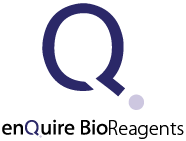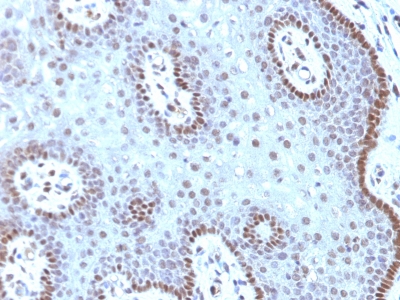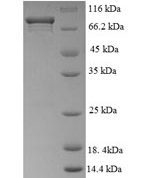Human Anti-c-Myc Oncoprotein Antibody Product Attributes
Species: Human
Tested Applications: Flow Cytometry, Immunofluorescence, Immunohistochemistry (IHC).
Application Notes: Flow Cytometry (0.5-1ug of antibody/million cells in 0.1ml), Immunofluorescence (1-2ug of antibody/ml), Immunohistochemistry (IHC) (Formalin-fixed) (1-2ug of antibody/ml for 30 minutes at RT)
Clonality: Monoclonal
Anti-c-Myc Oncoprotein Antibody Clone: MYC909
Clone MYC909 Host and Isotype: Mouse IgG1 kappa
Anti-Human c-Myc Oncoprotein Positive Control Sample: HL-60 cells or breast carcinoma
Cellular Localization of Antibody Nuclear
Buffer and Stabilizer: 10mM PBS with 0.05% BSA & 0.05% azide.
Antibody Concentration: 200ug/ml
Antibody Purification Method:Protein A/G Purified
Immunogen: Recombinant human c-myc protein
Storage Conditions: Store at 2 to 8° C (refrigerate). Stable for 24 months when properly stored.
c-Myc Oncoprotein Previously Observed Antibody Staining Patterns
Observed Subcellular, Organelle Specific Staining Data:
Anti-MYC antibody staining is expected to be primarily localized to the nucleoplasm.Observed Antibody Staining Data By Tissue Type:
Variations in c-Myc Oncoprotein antibody staining intensity in immunohistochemistry on tissue sections are present across different anatomical locations. An intense signal was observed in neuronal cells in the caudate nucleus, Purkinje cells in the cerebellum, squamous epithelial cells in the cervix, uterine, neuronal cells in the hippocampus, pneumocytes in lung and cells in the seminiferous ducts in testis. More moderate antibody staining intensity was present in neuronal cells in the caudate nucleus, Purkinje cells in the cerebellum, squamous epithelial cells in the cervix, uterine, neuronal cells in the hippocampus, pneumocytes in lung and cells in the seminiferous ducts in testis. Low, but measureable presence of c-Myc Oncoprotein could be seen inhematopoietic cells in the bone marrow, glandular cells in the cervix, uterine, endothelial cells in the colon, glandular cells in the colon, endometrium and fallopian tube, glial cells in the hippocampus, bile duct cells in the liver, germinal center cells in the lymph node, ovarian stroma cells in the ovary, glandular cells in the parathyroid gland, trophoblastic cells in the placenta, glandular cells in the salivary gland, fibroblasts in skin, Langerhans in skin, melanocytes in skin, smooth muscle cells in the smooth muscle, adipocytes in mesenchymal tissue, fibroblasts in mesenchymal tissue, peripheral nerve in mesenchymal tissue, cells in the white pulp in spleen and glandular cells in the thyroid gland. We were unable to detect c-Myc Oncoprotein in other tissues. Disease states, inflammation, and other physiological changes can have a substantial impact on antibody staining patterns. These measurements were all taken in tissues deemed normal or from patients without known disease.Observed Antibody Staining Data By Tissue Disease Status:
Tissues from cancer patients, for instance, have their own distinct pattern of c-Myc Oncoprotein expression as measured by anti-c-Myc Oncoprotein antibody immunohistochemical staining. The average level of expression by tumor is summarized in the table below. The variability row represents patient to patient variability in IHC staining.| Sample Type | breast cancer | carcinoid | cervical cancer | colorectal cancer | endometrial cancer | glioma | head and neck cancer | liver cancer | lung cancer | lymphoma | melanoma | ovarian cancer | pancreatic cancer | prostate cancer | renal cancer | skin cancer | stomach cancer | testicular cancer | thyroid cancer | urothelial cancer |
|---|---|---|---|---|---|---|---|---|---|---|---|---|---|---|---|---|---|---|---|---|
| Signal Intensity | ++ | - | ++ | ++ | + | - | - | ++ | ++ | - | + | ++ | ++ | ++ | ++ | + | ++ | + | - | ++ |
| MYC Variability | ++ | ++ | ++ | ++ | + | ++ | ++ | + | ++ | ++ | +++ | ++ | ++ | +++ | ++ | ++ | ++ | ++ | ++ | + |
Limitations and Warranty
enQuire Bio's c-Myc Oncoprotein Anti-Human Monoclonal is available for Research Use Only. This antibody is guaranteed to work for a period of two years when properly stored.

.jpg)



-178x178.jpg)

-178x178.jpg)
-178x178.jpg)

-178x178.jpg)
There are no reviews yet.